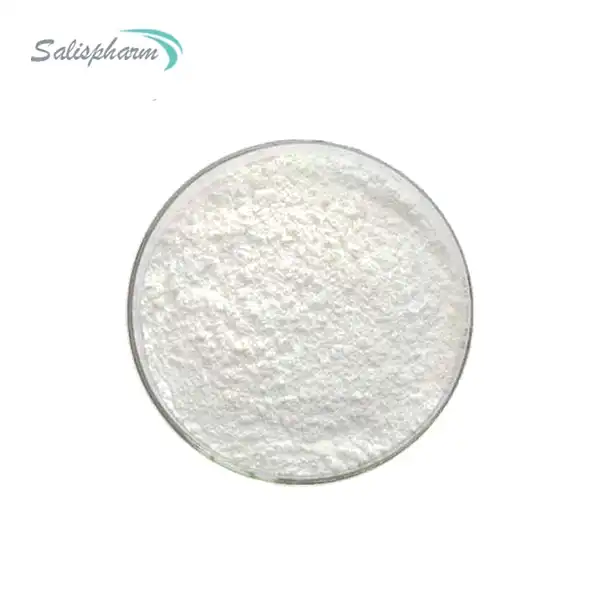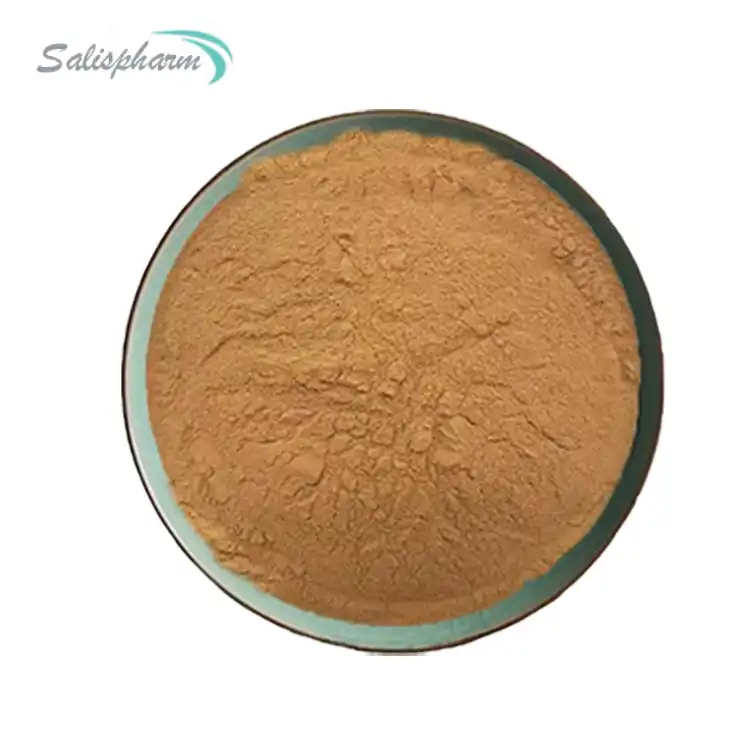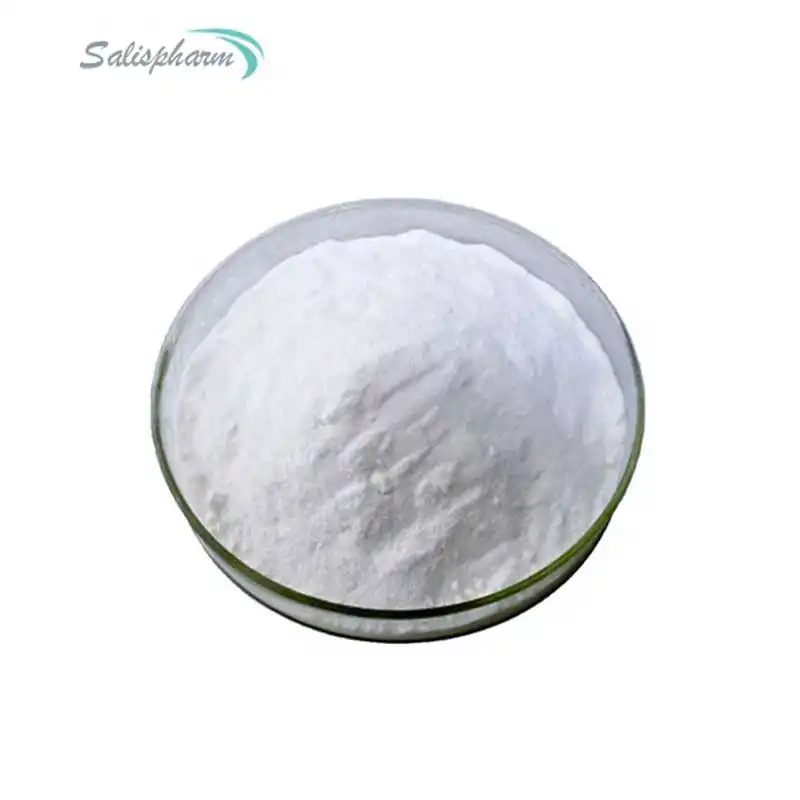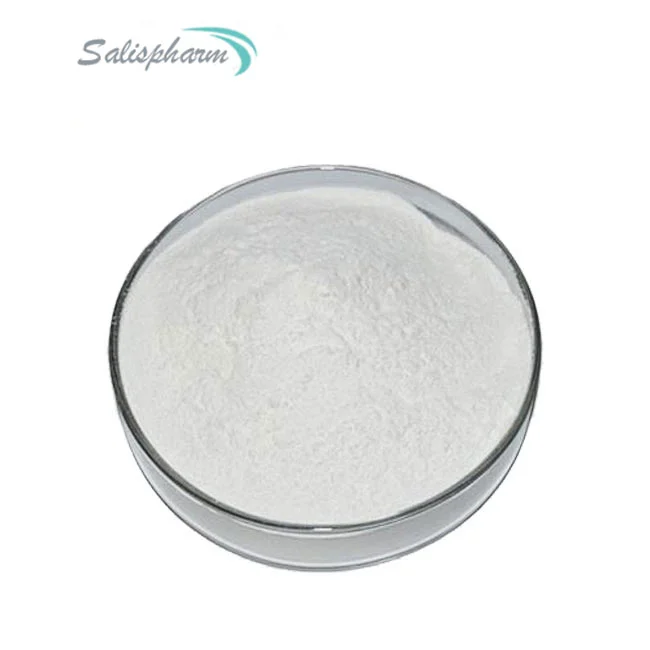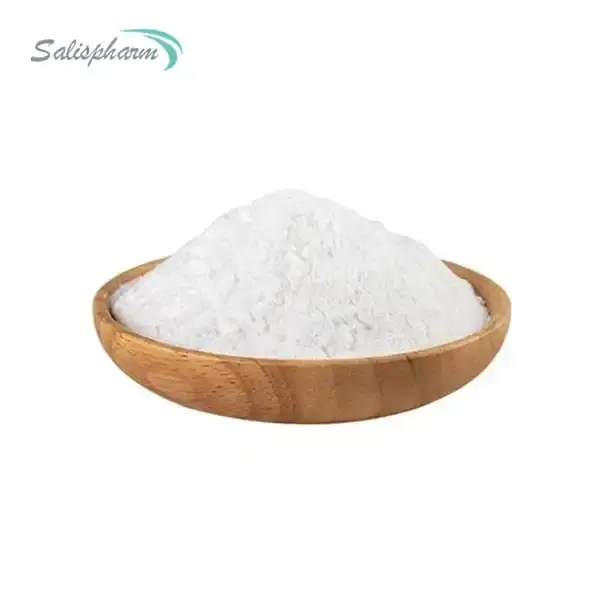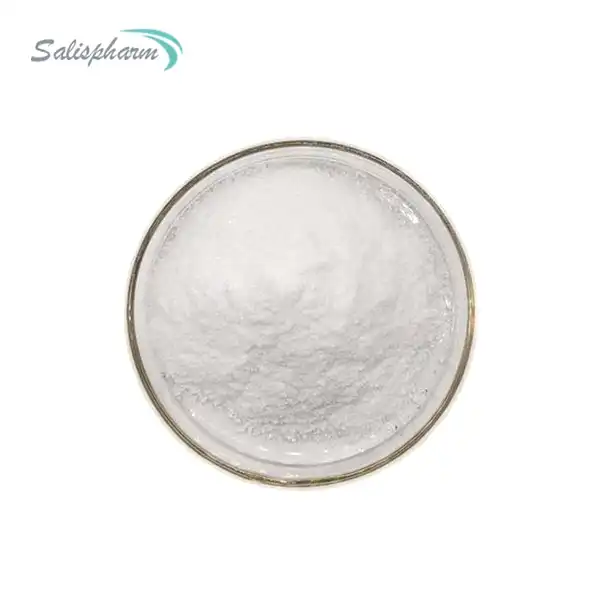S-Adenosylmethionine, commonly known as SAM-e, is a naturally occurring compound in the body that plays a crucial role in various biochemical processes. As a popular dietary supplement, SAM-e has gained attention for its potential benefits in supporting liver health, joint function, and mood regulation. However, when considering any supplement, it's essential to evaluate its safety for vital organs like the kidneys. This blog post will explore the relationship between SAM-e powder and kidney health, addressing common concerns and providing evidence-based information to help you make an informed decision about its use.
What are the potential side effects of SAM-e on kidney function?
S-Adenosylmethionine is generally considered safe for most people when taken as directed. However, like any supplement, it can potentially cause side effects, and its impact on kidney function is a valid concern for many users. While direct adverse effects on the kidneys are not commonly reported, it's crucial to understand how SAM-e might indirectly affect renal health.
One of the primary considerations is that SAM-e is involved in the methylation cycle, which is essential for numerous bodily functions, including detoxification processes. The kidneys play a vital role in filtering and eliminating waste products from the body. In theory, altering methylation pathways could impact how efficiently the kidneys perform this function. However, current research does not suggest that SAM-e supplementation significantly impairs kidney function in healthy individuals.
Some users have reported mild gastrointestinal discomfort, such as nausea or diarrhea, when taking SAM-e. While these side effects are not directly related to kidney function, they could potentially lead to dehydration if severe, which may indirectly stress the kidneys. It's essential to stay well-hydrated when taking any supplement, especially one that might cause digestive upset.
Another consideration is that S-Adenosylmethionine may affect neurotransmitter levels in the brain, particularly serotonin. While this is often considered beneficial for mood regulation, it's important to note that sudden changes in neurotransmitter balance could potentially impact blood pressure. Since the kidneys are sensitive to blood pressure changes, individuals with pre-existing kidney issues or hypertension should consult their healthcare provider before starting SAM-e supplementation.
It's worth noting that most studies on SAM-e have not reported significant adverse effects on kidney function. However, much of the existing research has focused on its benefits for liver health and mood disorders, with less emphasis on long-term renal outcomes. As with any supplement, individual responses can vary, and some people may be more sensitive to its effects than others.
How does SAM-e interact with kidney medications?
Understanding potential interactions between SAM-e and kidney medications is crucial for anyone considering this supplement, especially those with existing renal conditions. SAM-e's biochemical actions in the body can potentially influence the effectiveness or side effects of certain medications commonly prescribed for kidney-related issues.
One of the primary concerns is SAM-e's potential interaction with medications that affect serotonin levels in the brain. This includes some antidepressants, particularly selective serotonin reuptake inhibitors (SSRIs) and monoamine oxidase inhibitors (MAOIs). While these medications are not specifically for kidney conditions, they are sometimes prescribed to patients with chronic kidney disease who may experience depression. Combining SAM-e with these drugs could theoretically lead to serotonin syndrome, a potentially serious condition characterized by high levels of serotonin in the body.
For patients taking diuretics, which are often prescribed to manage fluid balance in kidney disease, S-Adenosylmethionine's mild diuretic effect could potentially enhance the action of these medications. While this might seem beneficial, it could lead to excessive fluid loss and electrolyte imbalances if not carefully monitored. Patients on diuretics should consult their healthcare provider before adding SAM-e to their regimen.
SAM-e may also interact with anticoagulant medications, such as warfarin, which are sometimes prescribed to kidney patients at risk of blood clots. SAM-e has been shown to have a mild blood-thinning effect, which could potentially increase the risk of bleeding when combined with anticoagulants. Close monitoring of coagulation parameters would be necessary for patients taking both substances.
Additionally, SAM-e's involvement in methylation processes could potentially influence the metabolism of certain drugs in the liver. This is particularly relevant for medications that rely on specific liver enzymes for their breakdown and elimination. While this doesn't directly impact the kidneys, it could affect the overall drug levels in the body, indirectly influencing kidney function or the effectiveness of kidney-related treatments.
It's also worth noting that SAM-e supplements often contain other ingredients, such as B vitamins, which themselves can interact with certain medications. For example, high doses of B6 can interfere with the effectiveness of some anti-seizure medications, which might be relevant for kidney patients with comorbid neurological conditions.
Given these potential interactions, it's crucial for anyone with kidney issues or taking kidney-related medications to consult with their nephrologist or healthcare provider before starting SAM-e supplementation. They can provide personalized advice based on an individual's specific medical history, current medications, and kidney function status.
Can SAM-e supplementation improve kidney health?
While much of the discussion around S-Adenosylmethionine and kidney health focuses on potential risks and interactions, it's also worth exploring whether this supplement could offer any benefits for renal function. SAM-e's role in various metabolic processes suggests it might have some positive effects on overall organ health, including the kidneys.
One of the primary ways SAM-e might support kidney health is through its antioxidant properties. Oxidative stress is a significant factor in kidney damage and the progression of chronic kidney disease. SAM-e is involved in the production of glutathione, one of the body's most potent antioxidants. By potentially boosting glutathione levels, SAM-e supplementation could help protect kidney cells from oxidative damage.
Additionally, SAM-e's role in methylation processes is crucial for DNA repair and cell regeneration. Healthy cell turnover is essential for maintaining optimal kidney function. Some researchers hypothesize that by supporting these fundamental cellular processes, SAM-e might contribute to the overall health and resilience of kidney tissues.
Inflammation is another key factor in kidney disease progression. While more research is needed, some studies suggest that SAM-e may have anti-inflammatory properties. If this proves to be true in the context of kidney health, it could potentially slow the progression of inflammatory kidney conditions.
SAM-e's potential to support liver health is well-documented, and there's an interesting connection between liver and kidney function. The liver and kidneys work together in many detoxification processes, and supporting liver health can indirectly benefit the kidneys by reducing their workload in filtering toxins from the blood.
However, it's important to note that while these potential benefits are promising, the direct evidence for SAM-e improving kidney health is limited. Most studies on SAM-e have focused on its effects on liver function, joint health, and mood disorders. More targeted research is needed to definitively establish its benefits for kidney health.
Moreover, the potential benefits of SAM-e supplementation must be weighed against the risks, especially for individuals with existing kidney conditions. Kidney function can be delicate, and introducing any new supplement requires careful consideration and medical supervision.
In conclusion, while S-Adenosylmethionine powder shows promise in various aspects of health, its specific impact on kidney safety and function requires further investigation. The potential side effects, while generally mild, should be carefully considered, especially for individuals with pre-existing kidney conditions. The interactions between SAM-e and kidney medications highlight the importance of consulting healthcare providers before starting any new supplement regimen. While there are theoretical benefits to kidney health, more research is needed to establish SAM-e's role in supporting renal function definitively. As with any supplement, the decision to use SAM-e should be made in consultation with a healthcare professional, taking into account individual health status, current medications, and specific health goals.
If you are also interested in this product and want to know more product details, or want to know about other related products, please feel free to contact iceyqiang@aliyun.com.
References:
1. Galizia, I., et al. (2016). S-adenosyl methionine (SAMe) for depression in adults. Cochrane Database of Systematic Reviews.
2. Lieber, C. S. (2002). S-Adenosyl-L-methionine: its role in the treatment of liver disorders. The American Journal of Clinical Nutrition.
3. Mischoulon, D., & Fava, M. (2002). Role of S-adenosyl-L-methionine in the treatment of depression: a review of the evidence. The American Journal of Clinical Nutrition.
4. Papakostas, G. I., et al. (2010). S-adenosyl methionine (SAMe) augmentation of serotonin reuptake inhibitors for antidepressant nonresponders with major depressive disorder: a double-blind, randomized clinical trial. American Journal of Psychiatry.
5. Rambaldi, A., & Gluud, C. (2006). S-adenosyl-L-methionine for alcoholic liver diseases. Cochrane Database of Systematic Reviews.
6. Rutjes, A. W., et al. (2009). S-Adenosylmethionine for osteoarthritis of the knee or hip. Cochrane Database of Systematic Reviews.
7. Sharma, A., et al. (2017). S-Adenosylmethionine (SAMe) for Neuropsychiatric Disorders: A Clinician-Oriented Review of Research. The Journal of Clinical Psychiatry.
8. Strous, R. D., et al. (2005). Analysis of clinical symptoms and COMT genotype in patients with chronic schizophrenia on long-term clozapine treatment. Progress in Neuro-Psychopharmacology and Biological Psychiatry.
9. Williams, A. L., et al. (2005). S-Adenosylmethionine (SAMe) as treatment for depression: a systematic review. Clinical and Investigative Medicine.
10. Žigmond, M. J., et al. (2012). Increased brain SAM-e following oral administration: Implications for treatment of depression. Neuropsychopharmacology.



